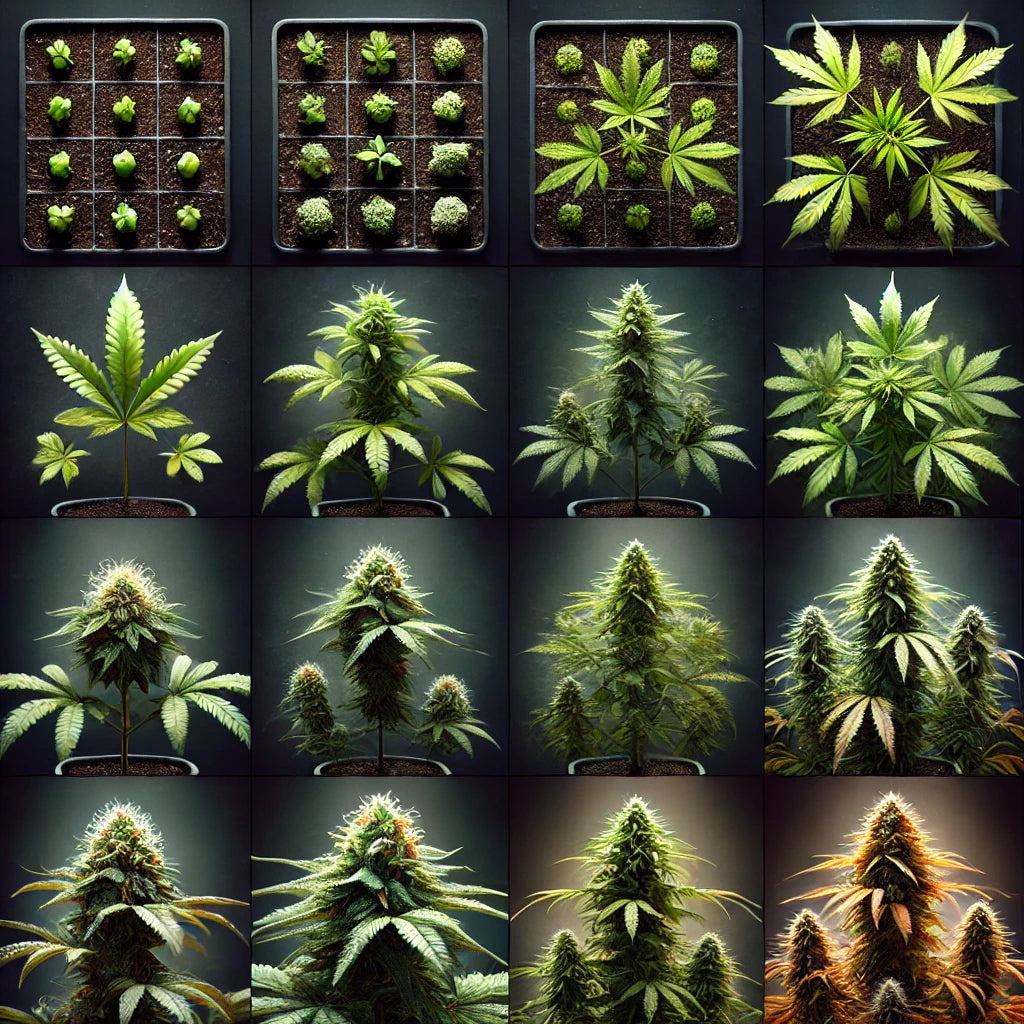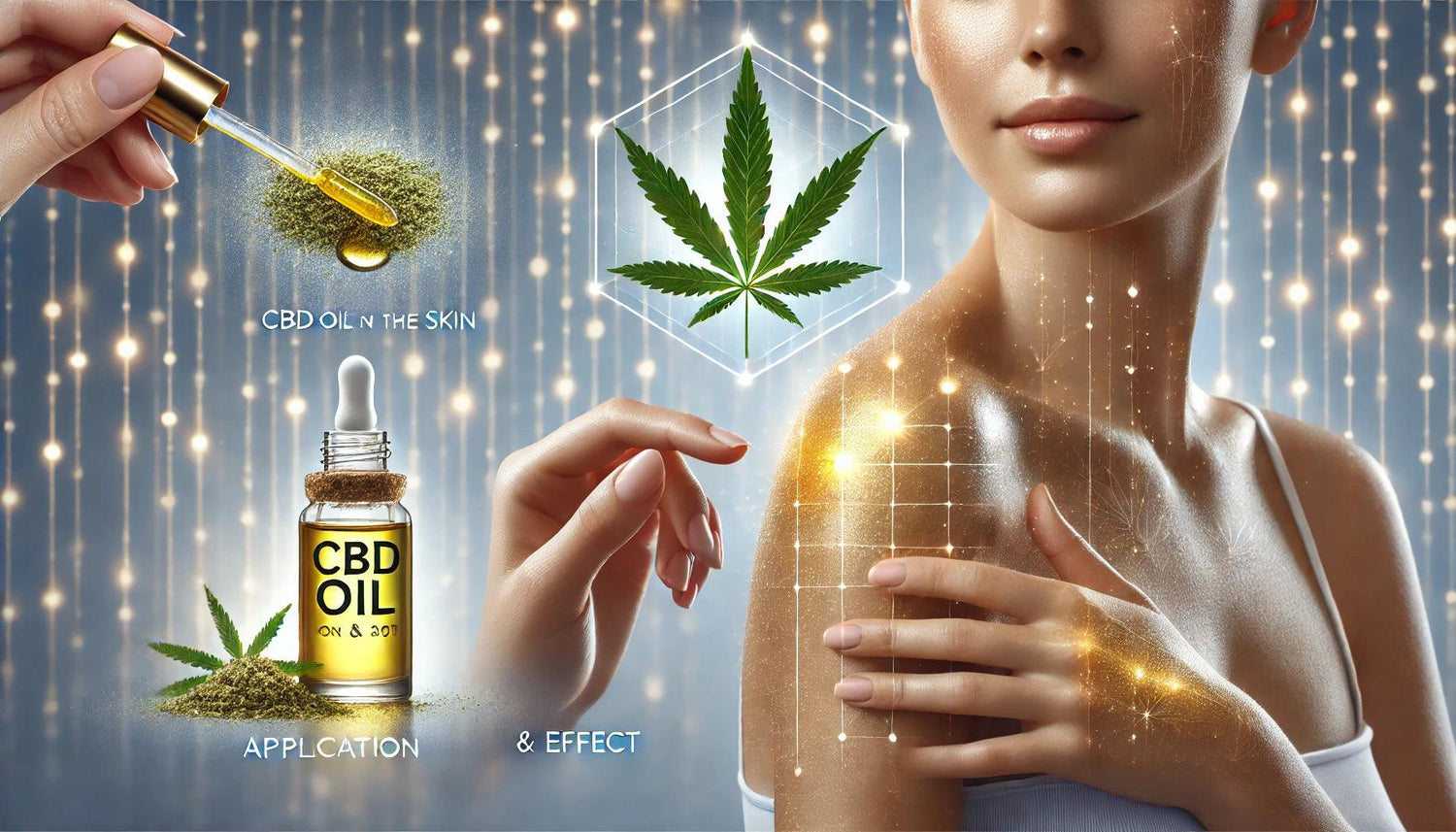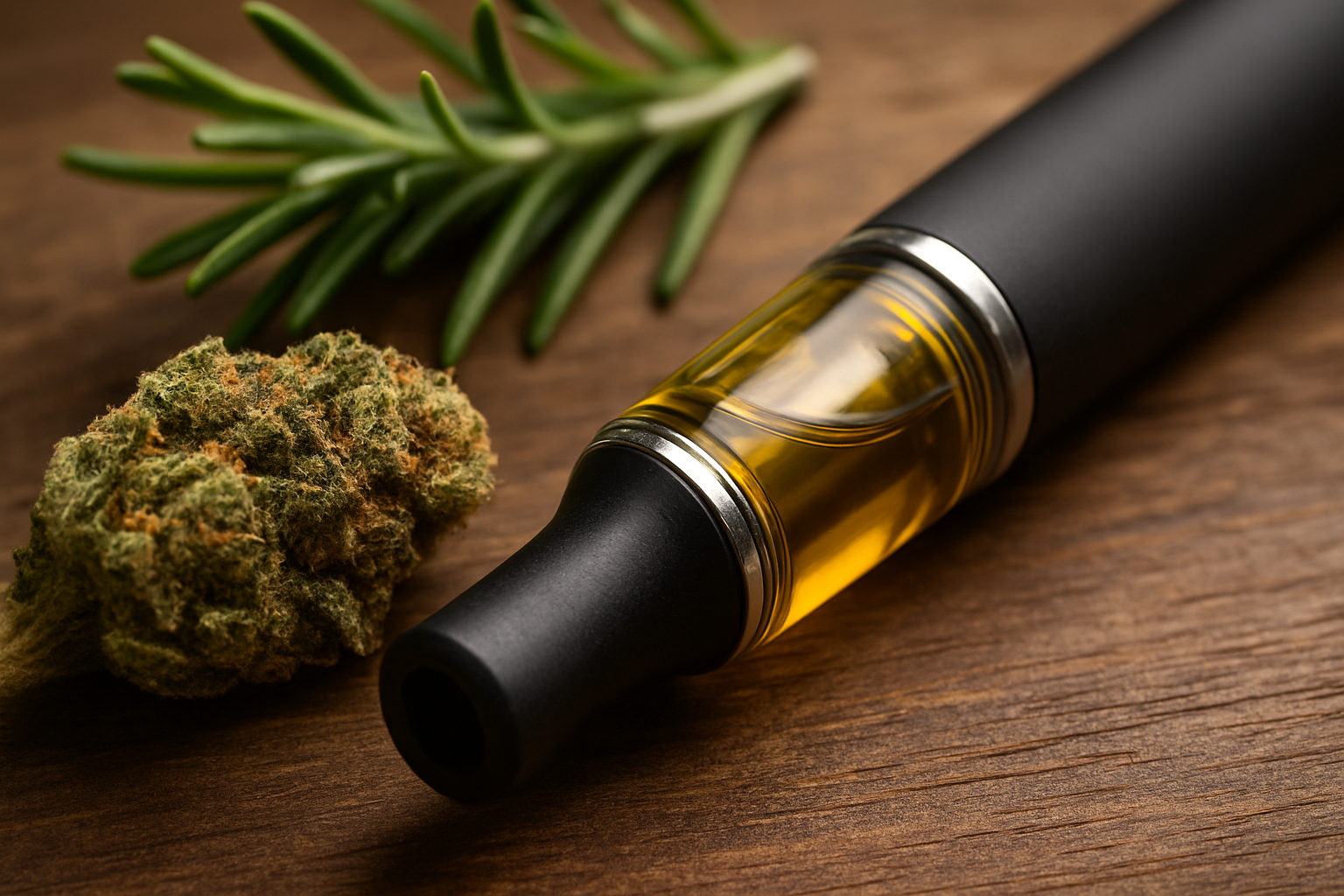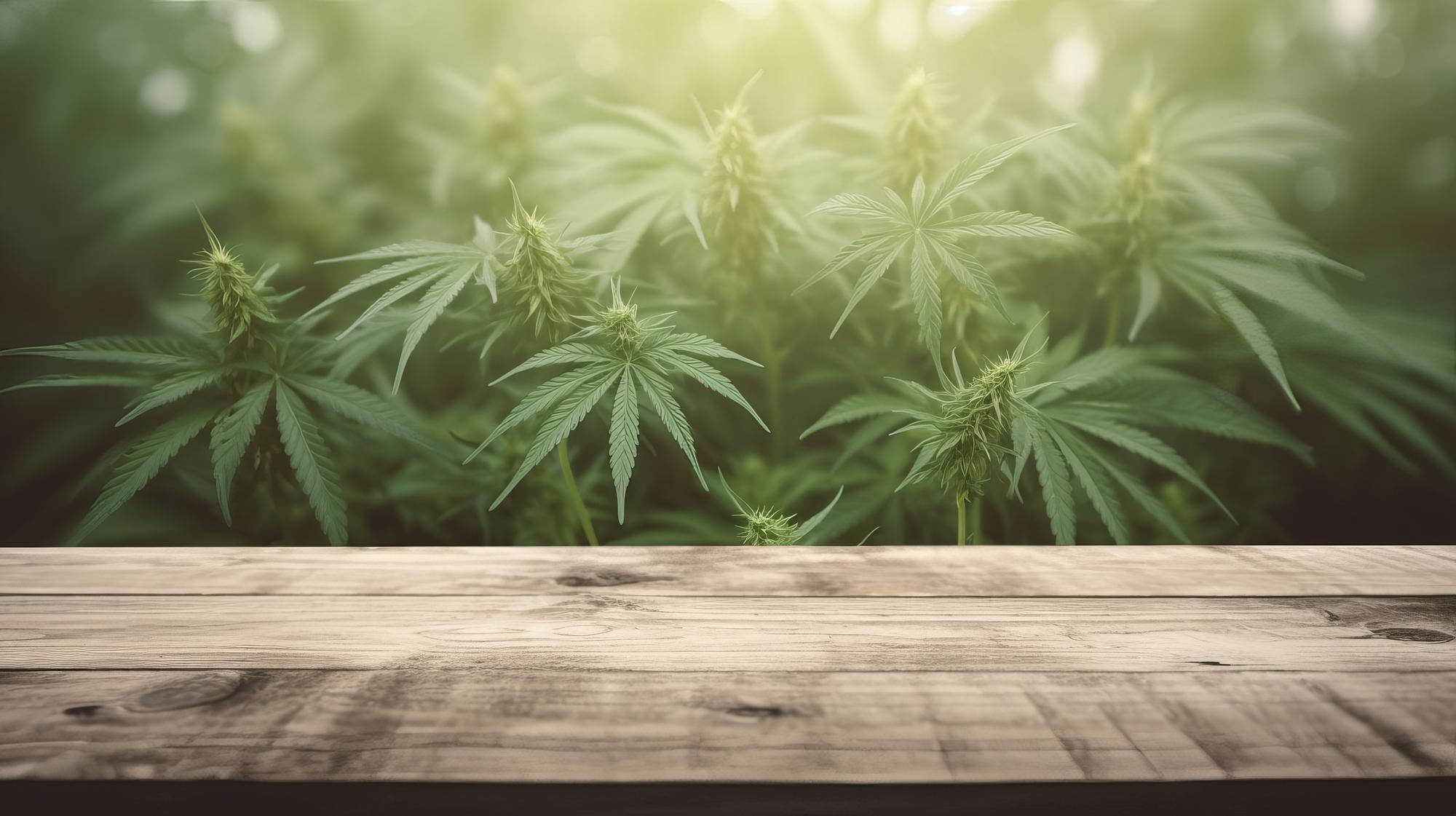What is CBD oil and how does it affect the skin?
CBD oil, short for cannabidiol oil, is a natural extract from the hemp plant that has attracted more and more attention in recent years due to its diverse properties. Unlike its well-known relative THC, CBD has no psychoactive effects, but offers numerous potential health benefits - especially for your skin.
The composition of CBD oil
CBD oil consists mainly of the active ingredient cannabidiol, which is extracted from the flowers and leaves of the hemp plant. This is then mixed with a carrier oil, often coconut or hemp seed oil. The result is a versatile product that can be used both internally and externally.
How CBD oil affects the skin
The effect of CBD oil on the skin is based on its interaction with our body's endocannabinoid system (ECS). This system plays an important role in regulating various skin functions, including sebum production, cell growth and inflammatory responses.
When you apply CBD oil to your skin, it can:
- Reduce inflammation
- Regulate sebum production
- Develop antioxidant properties
- Promote skin regeneration
The main benefits of CBD oil for the skin
| Advantage | Effect |
|---|---|
| Anti-inflammatory | Relieves redness and swelling |
| Moisturizing | Improves skin hydration |
| Antioxidant | Protects against free radicals and environmental influences |
It is important to emphasize that research on CBD oil and its effects on skin is still in its early stages. Many of the potential benefits are based on preliminary studies and user experiences. Nevertheless, the results so far show promising possibilities for skin care.
In the following sections, we will take a closer look at which specific skin problems CBD oil can be particularly helpful for and how best to use it to achieve optimal results.
The top 5 skin problems you can treat with CBD oil
CBD oil has proven to be a versatile skin care product. It can provide relief from a variety of skin problems and improve the overall appearance of the skin. Here are the five most common skin problems for which CBD oil can be particularly effective:
1. Acne and oily skin
CBD oil can regulate sebum production and have an anti-inflammatory effect. A 2014 study showed that CBD prevents the sebaceous glands from producing excessive sebum. At the same time, it has a soothing effect on inflamed areas of skin, which can reduce acne.
2. Dry skin and eczema
The moisturizing properties of CBD oil make it an effective remedy for dry skin. It can strengthen the skin barrier and thus better retain moisture in the skin. In the case of eczema, CBD oil can relieve itching and redness.
3. Ageing of the skin
Thanks to its antioxidant properties, CBD oil can neutralize free radicals that are responsible for premature skin aging. It can help reduce fine lines and wrinkles and improve skin elasticity.
4. Sensitive and irritated skin
CBD oil has soothing properties that are especially beneficial for sensitive skin. It can reduce redness and irritation and protect the skin from environmental stressors.
5. Psoriasis
Although more research is needed, initial studies suggest that CBD oil may help with psoriasis. It can inhibit the excessive growth of skin cells and reduce inflammation that is typical of this skin condition.
| Skin problem | How CBD oil can help |
|---|---|
| acne | Regulates sebum production, reduces inflammation |
| Dry skin | Moisturizes, strengthens the skin barrier |
| Skin aging | Fights free radicals, improves elasticity |
| Sensitive skin | Soothes, reduces redness and irritation |
| psoriasis | Inhibits excessive cell growth, relieves inflammation |
It is important to note that the effectiveness of CBD oil can vary from person to person. While many people report positive results, you should always consult a dermatologist if you have severe or persistent skin problems. CBD oil can be a valuable addition to your skin care routine, but should not be considered a substitute for professional medical treatment.
In the next sections, you will learn how to use CBD oil correctly to get the best results for your skin.
How to use CBD oil correctly on your skin: step-by-step instructions
Using CBD oil correctly is crucial to achieving the best possible results for your skin. Here is a detailed guide on how to effectively incorporate CBD oil into your skincare routine:
1. Cleanse your skin thoroughly
Before applying CBD oil, it is important to cleanse your skin of dirt, makeup and excess sebum. Use a gentle, pH-neutral cleanser that will not dry out your skin.
2. Test the oil for compatibility
Before using for the first time, perform a patch test. Apply a small amount of CBD oil to an inconspicuous area, such as the inside of your wrist. Wait 24 hours and observe whether irritation occurs.
3. Dose the CBD oil correctly
Less is often more. Start with 2-3 drops of CBD oil for your entire face. You can gradually increase the amount if necessary. An overdose can lead to oily skin.
4. Apply the oil correctly
Place the drops in the palm of your hand and rub gently to warm the oil slightly. Then apply to your face and neck using light, circular movements, being careful to avoid the delicate eye area.
5. Timing is important
The best time to use CBD oil is in the evening before going to bed. This allows the oil to work optimally overnight. If you use it during the day, apply it 15-20 minutes before applying sunscreen or makeup.
| Skin type | Recommended application frequency |
|---|---|
| Normal to combination skin | 1-2 times daily |
| Oily, acne-prone skin | Once daily or every other day |
| Dry, sensitive skin | 1-2 times daily, if necessary with additional moisturizer |
Additional tips for best results:
- Combine CBD oil with your regular moisturizer for extra hydration.
- If your skin is very dry, you can mix the CBD oil with other nourishing oils such as jojoba oil.
- For intensive treatments, you can apply a CBD oil mask and leave it on for 15-20 minutes.
- Look for high-quality, pure CBD oils without additional, potentially irritating ingredients.
Note that it may take some time before you see visible results. Be patient and use the CBD oil consistently. Every skin is unique, so you may need to adapt the application to your individual needs.
If you notice side effects such as redness, itching or increased skin irritation, stop using it immediately and consult a dermatologist. In most cases, however, CBD oil is well tolerated and can be a valuable addition to your skin care routine.
CBD oil vs. conventional skin care products: A surprising comparison
In the world of skin care, there are countless products that promise to improve your skin. But how does CBD oil compare to conventional skin care products? Let's take a closer look.
Naturalness and ingredients
CBD oil scores points with its natural origin. It is extracted from the hemp plant and usually contains only a few, mostly natural additives. In contrast, many conventional skin care products consist of a long list of synthetic ingredients that can be potentially irritating.
Versatility of application
While most conventional products are designed for specific skin problems, CBD oil can help with a wide range of skin problems. It is suitable for dry skin, acne, inflammation and can even have anti-aging properties.
Mode of action and effectiveness
CBD oil works with the body's endocannabinoid system, which can lead to a more holistic effect. Conventional products often target specific symptoms without addressing the underlying causes.
| aspect | CBD oil | Conventional products |
|---|---|---|
| naturalness | Mostly natural | Often synthetic |
| versatility | High | Mostly specific |
| Side effects | Rarely | More often |
| Long-term effects | Potentially sustainable | Often temporary |
Tolerability and side effects
CBD oil is generally well tolerated, even by sensitive skin. Side effects are rare. With conventional products, irritation or allergic reactions can occur more frequently, depending on the ingredients.
Sustainability and environmental friendliness
The production of CBD oil is often more environmentally friendly than the production of many conventional skin care products. Hemp, from which CBD is extracted, is a sustainable plant that requires little water and no pesticides.
Value for money
At first glance, CBD oil may seem more expensive than many conventional products. However, considering its versatility and potential long-term effects, it can be quite cost-effective.
It is important to stress that CBD oil is not the best solution for every skin problem. In some cases, specialized conventional products or medical treatments may be necessary. In addition, research on CBD oil is still ongoing and not all potential benefits are fully scientifically proven.
Ultimately, the choice between CBD oil and conventional skin care products depends on your individual needs, skin type, and personal preferences. It may be useful to use CBD oil as a supplement to your existing skin care routine and observe its effects over a longer period of time.
Frequently asked questions about the use of CBD oil in skin care
Many people are curious about CBD oil for skin care, but often still have questions about its use and effects. Here you will find answers to the most frequently asked questions:
1. Does CBD oil get you high?
No, CBD oil does not make you high. It contains no or only trace amounts of THC, the psychoactive component of the cannabis plant. You can safely use CBD oil for your skin care without having to worry about intoxicating effects.
2. Is CBD oil legal?
In Germany, CBD oil is legal as long as it contains less than 0.2% THC. When buying, look for reputable suppliers who have their products tested and certified accordingly.
3. How long does it take until I see results?
The effect of CBD oil on the skin can vary greatly from individual to individual. Some people report rapid improvements within a few days, especially in cases of inflammation or redness. For long-term effects, such as improving the general appearance of the skin, you should consider regular use over 4-6 weeks.
4. Can I combine CBD oil with other skin care products?
Yes, in most cases you can easily combine CBD oil with your other skin care products. It is recommended that you apply the CBD oil as a first layer to cleansed skin and then use your usual products.
5. Are there any side effects when using CBD oil on the skin?
Side effects are rare but possible. Some people report mild irritation or redness. Always do a patch test before applying CBD oil to a large area. If side effects persist, you should stop using it and consult a doctor.
| Ask | Answer |
|---|---|
| Is CBD oil suitable for all skin types? | Basically yes, but the effect can vary |
| Can CBD oil reduce acne scars? | Possibly due to anti-inflammatory properties |
| Is CBD oil safe during pregnancy? | Consult a doctor before use |
6. How do I choose the right CBD oil for my skin?
Pay attention to quality and concentration. Choose a product with a CBD content of 1-5% to start with. Prefer organic products without artificial additives. Read reviews and ask for recommendations in specialty stores.
7. Can CBD oil replace sunscreen?
No, CBD oil does not provide adequate protection against UV rays. Always use a suitable sunscreen in addition to your CBD care.
It's important to understand that research on CBD in skin care is still relatively new. While there are many positive reports, more scientific studies are needed to fully understand all of the potential benefits and mechanisms of action.
If you are unsure whether CBD oil is suitable for your specific skin situation, consult a dermatologist. They can give you personalized recommendations and consider possible interactions with other treatments.
With the right knowledge and a careful approach, CBD oil can be a valuable addition to your skincare routine. Experiment carefully and observe how your skin reacts to find the best application method for you.

















